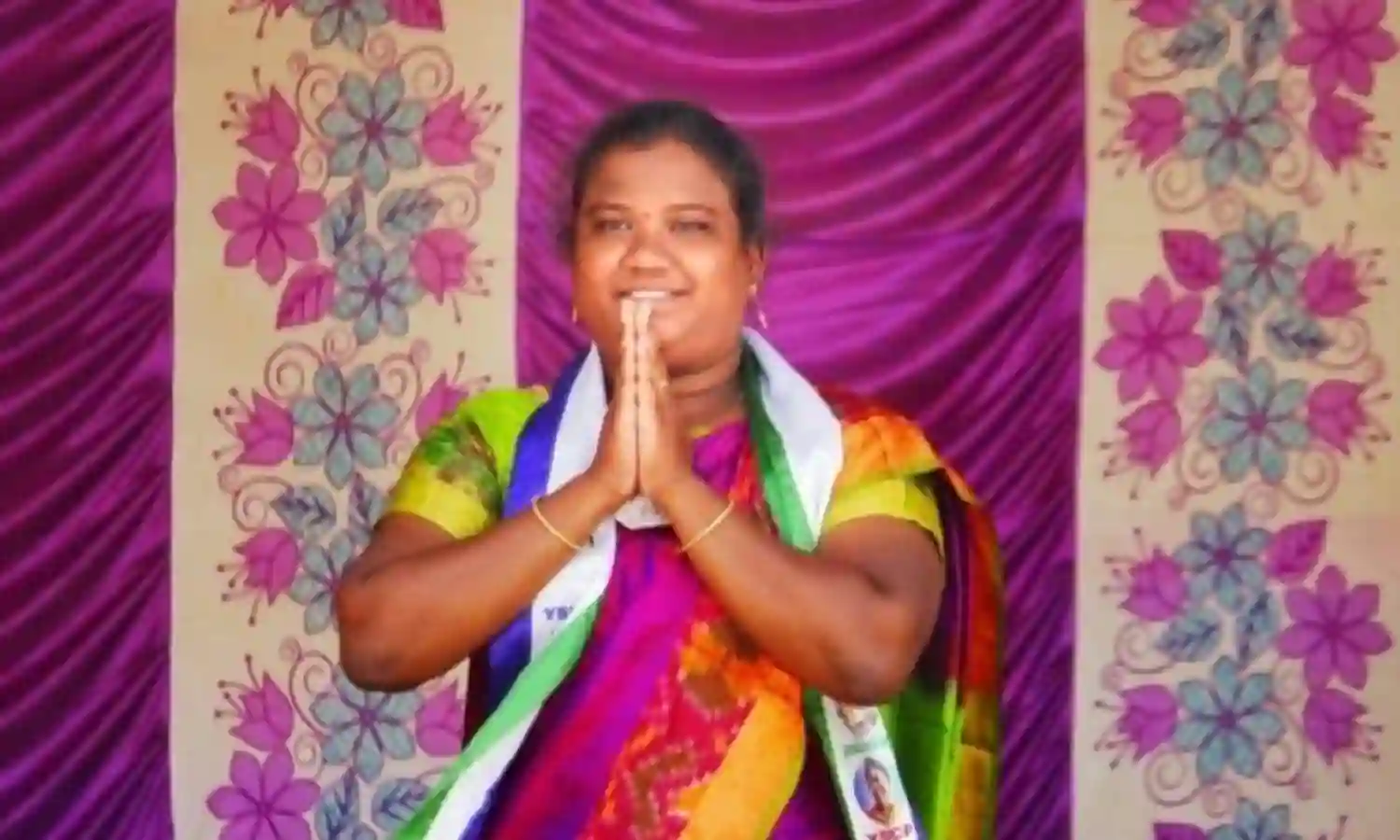'Success Will Depend on Hard Work': In Conversation with First Time MP Goddeti Madhavi
A #TCSeries on firstime women MPs

NEW DELHI: Araku in Andhra Pradesh, geographically the second largest constituency in India, recently elected the youngest MP from the state, 26 year old Goddeti Madhavi. Before acquiring this new role, Madhavi used to be a physical education teacher at a tribal school in Paderu.
At a time when politics is considered a domain rampant with money and muscle power, this parliamentarian from the YSR Congress breaks the glass ceiling by becoming the MP with the least declared assets, of ?1.41 lakh.
Madhavi defeated her nearest rival, six-time MP and former union minister Krishna Chandra Deo of the TDP, by a huge margin of 2,24,098 votes.
The Araku Lok Sabha constituency is reserved for candidates from the Scheduled Tribes. The region’s residents are predominantly Adivasi, and issues commonly raised here are a lack of proper drinking water, inadequate health and educational services, a lack of employment, poor road connectivity, and the trafficking of young girls.
Madhavi’s father was the late Goddeti Demudu, a two-time CPI MLA from the Chintapalli assembly constituency known for standing up against bauxite mining, and for his selfless work for Adivasis in the region.
With fresh fervour, Madhavi wishes to continue her father’s legacy of achieving Adivasis’ welfare in the region. In an email interview with The Citizen, she briefly discusses some of her plans to resolve the issues plaguing the region for so long.
What prompted the transition from a physical education teacher to an MP?
Actually, even before being a PE teacher, I am the daughter of the late Goddeti Demudu. My father has always been with the common people and has always led a simple life. His MLA salary was also used for party events, and he did not have a single allegation of impropriety against him. He fought against bauxite mining in the region till his last breath. His dedication towards tribals’ welfare in the region inspired me a lot.
What are the challenges you see ahead, after your huge victory over a strong incumbent?
Araku has four districts, each with a diverse set of problems. Some of the places don’t even have roads, and the majority of places lack a proper drinking water supply.
Your campaign highlighted issues of healthcare, drinking water, education, unemployment and infrastructure in the region. How do you plan to work on these areas?
To take an example, I am planning to set up a small empowerment class. The initial step would be to change the mindset of the tribals, encourage them to stay strong and to make them realise their potential, in order to bring them at par with the rest of society. They don’t know how to utilise the central and state schemes owing to lack of communication in the past.
I have a few action plans for solving some major issues. Currently, I am in the process of meeting each and every officer regularly. I am expecting a positive change in the coming years, on all of the above issues. Success will depend on my hard work too.
Being one of the youngest MPs, what is your vision for youth and their employment in the Araku Valley?
I plan on generating employment by setting up small scale industries in the region. Every month, I will take a review and feedback to keep a check on the progress of the work and development activities.
Araku has previously faced a problem of tra?cking of young girls. How are you planning to ensure the safety and development of women?
I have already met SP sir (the Superintendent of Police) regarding the issue. There is a need to bring more awareness on the issues concerning women.
Why did you join the YSR Congress?
During my college days, I was inspired by the Chief Minister of Andhra Pradesh, the late Mr Y.S.Rajasekhara Reddy. When my father was suffering from a dangerous viral fever, Mr Reddy sent a medical team and a special flight – this at a time when my father was not even from his party.
Y.S.Jaganmohan Reddy sir is also very hard working, and has been fighting for Andhra’s welfare for the past eight years. Even though he faced many hurdles, was put in jail, and his MLAs were purchased by the ruling party, not once did he lose patience, and he continued his struggle for the state.



